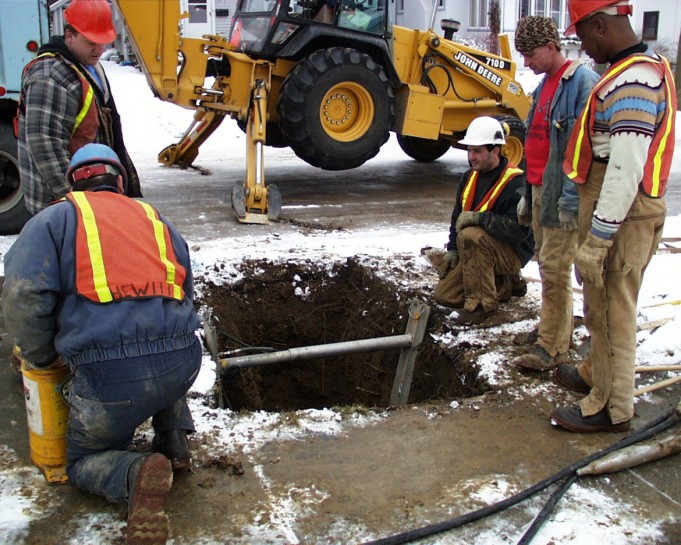The state Department of Natural Resources announced on April 27 that it will target low-income areas with $11.8 million in new grants to replace aging pipes made of lead that supply water to homes.
The dangers of lead in drinking water have been highlighted by the crisis in Flint, Michigan, where corrosion from a new water source sent unsafe levels of lead into homes, doubling the rate of lead poisoning among children. Lead exposure has been linked to irreversible brain damage in children, miscarriages and other health problems.
The DNR said it will make money available to water utilities to subsidize or pay for replacement of homeowners’ portions of the lead service lines that run from the curb to the house. Replacement of those segments will cost about $3,000 per home, the DNR said.
At least 176,000 homes and businesses in Wisconsin receive water from lead service lines, the Wisconsin Center for Investigative Journalism reported in February.
Milwaukee has about 70,000 lead service lines, which the Milwaukee Water Works has estimated would cost half a billion dollars to replace. Madison is thought to be the first city in the nation to replace all of its lead service lines.

In a statement, DNR Secretary Cathy Stepp said the agency recognizes that the cost of replacement is a big barrier to utilities and private property owners alike. This program “offers an effective way to fill the financial gap,” she said.
Details of the program still are being worked out, but the agency proposes that communities with 50,000 people or less could receive up to $300,000; medium-sized communities would get up to $500,000 and Milwaukee could qualify for up to $750,000. The program is scheduled to begin July 1 and will be renewed in 2017 if it is successful, Stepp said.
The size of the grants will be determined by factors including median household income and unemployment rates.
Stepp said the program was made possible by a recent decision by the U.S. Environmental Protection Agency to allow states to use federal funds for lead service line replacements on private property.

(PHOTO BY KATE GOLDEN)
The Center’s Failure at the Faucet series found that the current federal regulations intended to safeguard drinking water from lead contamination fail to protect public health. The Center found that methods for sampling often do not detect the highest level of lead in a consumer’s home, too few homes are sampled, and those that are may not be in the neighborhoods most at risk.
The investigation also found that requiring utilities to replace lead service lines can cause dangerous spikes in lead unless the homeowner’s portion is replaced as well. Recognizing the dangers posed by partial pipe replacement, the DNR said the funds will be used for full replacement projects.
A Madison consultant who works with water utilities to solve lead problems in drinking water said she was pleased to see the DNR make such a “bold move.” Abigail Cantor, a chemical engineer with Process Research Solutions, said cost is not the only barrier to full lead pipe replacement. There are also questions about property ownership to be resolved.
“With DNR’s announcement, it looks promising that Wisconsin government agencies will overcome many obstacles to make complete lead service line replacement a reality in our state,” she said.
Failure at the Faucet is the Wisconsin Center for Investigative Journalism’s ongoing investigation of risks to Wisconsin’s drinking water. The nonprofit Center (www.WisconsinWatch.org) collaborates with Wisconsin Public Radio, Wisconsin Public Television, other news media and the University of Wisconsin-Madison School of Journalism and Mass Communication. All works created, published, posted or disseminated by the Center do not necessarily reflect the views or opinions of UW-Madison or any of its affiliates.




























